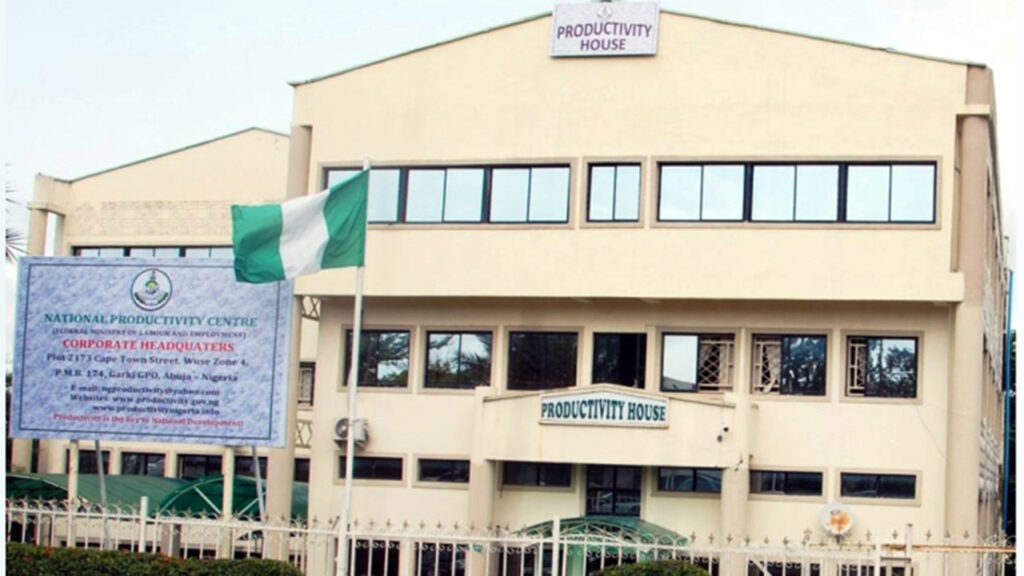Individuals and organisations must enjoy assigned tasks and stop seeing duties as forms of punishment, the Director of Planning and Policy Analysis, Department of the National Productivity Centre (NPC), Rosemary Esekhagbe, has said.
Speaking at a capacity building for Productivity Research Officers on Consolidated Research and Allied Institutions Salary Structure (CONRAISS) 12 And 13, Esekhagbe highlighted the importance of three key drivers of productivity: knowledge, skill, and attitude.
The director, whose paper was entitled: ‘Productivity Tools and Techniques’, said positive attitudes are catalysts for job satisfaction, job involvement and organisational commitment, while she cautioned against negative attitudes, saying such behavioural patterns could have adverse effects on team dynamics.
Esekhagbe stressed the necessity of cultivating a proactive ‘I can do’ spirit to effectuate attitudinal change, likening negative attitudes to a flat tyre that requires replacement.
While providing insights into the possible correlation between attitude and pretence, she highlighted the tendency for individuals to mirror their true attitudes despite attempts at pretence, suggesting that a focus on personal responsibility could mitigate such discrepancies.
On how to mitigate indiscipline and foster commitment within organisations, Esekhagbe referenced the implementation of a Performance Management System (PMS) by the Head of Service of the Federation as a measure aimed at addressing indiscipline, revealing that there are ongoing training initiatives to enhance staff competence and commitment.
She added: “By fostering a positive and proactive mindset among employees, institutions like the NPC can navigate challenges effectively and achieve their goals.”
Speaking on ‘Productivity Concepts and Imperatives’ Director, Measurement and Index Department of the NPC, David Adejoh, advocated a change in basic assumptions towards work and highlighted the importance of training as a necessity rather than a privilege for organisational productivity.
Adejoh lauded Bauchi, Borno, Benue, Enugu, Kaduna, Lagos, Sokoto, and Osun for completing their train-the-trainer course.
Adejoh explained that productivity is an attitude of continuous improvement that is essential for societal advancement.
He explained productivity as an integrated concept, emphasizing the efficient conversion of resources into products and services for societal benefit.
Adejoh underscored the quantifiable nature of factors influencing productivity, advocating for data-driven insights leading to informed decisions.
While delineating three forms of productivity measurement including partial factor productivity, multifactor productivity, and total productivity, Adejoh stressed the importance of comprehensive resource assessment in achieving accurate measurements.
To achieve higher productivity, Adejoh recommended streamlining processes, minimising bureaucratic controls, and eliminating non-value-added activities.
On boosting the efficiency of the manufacturing sector, Adejoh stressed the need for the adoption of the Just-in-Time (JIT) concept which focuses on supplying necessary quantities of parts precisely when needed, thereby reducing waste and improving productivity.
Adejoh also mentioned automation, which involves integrating human intelligence into automated machines to prevent defects and downtime.
According to him, identification and elimination of waste, including overproduction, waiting, transportation, over-processing, inventory, motion, defects, and unutilized skills are key for increasing outputs. He emphasised the significance of analysing waste types such as defects, overburden and unevenness in optimizing production processes.
“Line balance improvement is aimed at reducing operator waiting time and improving assembly line productivity are effective in eliminating waste. The benefits of this approach include minimising work-in-process inventory, reducing production lead time, and increasing line capacity without additional investments. It is also important to empower workers to stop production lines in case of equipment breakdowns or quality issues. The role of automation in maintaining efficiency and quality is equally crucial,” he explained. Adejoh emphasised the importance of proper brainstorming in identifying root causes and understanding the driver-impact dynamics.













